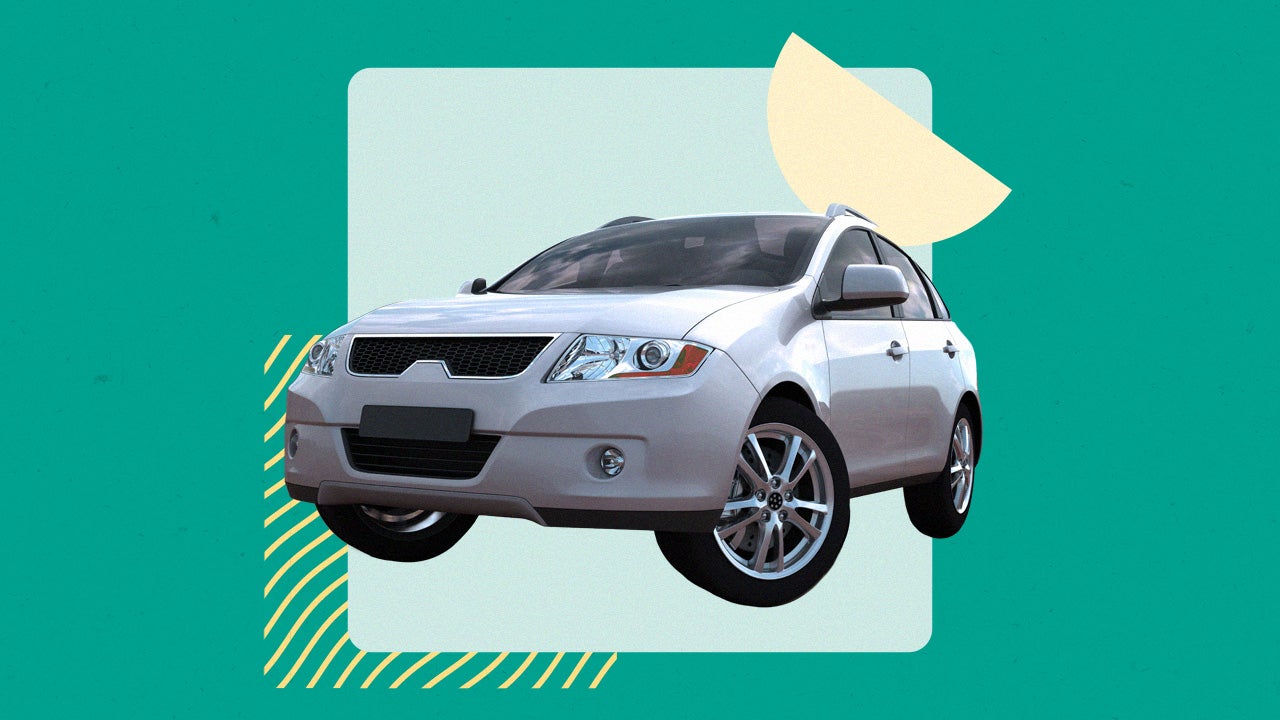Auto loan refinancing: What is it and how does it work?

Key takeaways
- Auto loan refinancing allows you to pay off your existing car loan with a new one.
- By refinancing, you may be able to secure a lower interest rate or adjust the length of your loan.
- If your credit score has improved, current car loan rates are low or you have positive equity in your vehicle, refinancing could be a good choice.
- Refinancing doesn’t make sense if you own an older or high-mileage vehicle, have bad credit or the cost of switching to a new lender is too high.
Auto loan refinancing is the process of taking out a new car loan to pay off your current one. Applying for refinancing is similar to buying a new (or used) car, except the lender will need more details about the condition, age and mileage of your vehicle for approval. Knowing the requirements of auto loan refinancing will help you decide if it’s right for you.
How does refinancing a car loan work?
Refinancing is what it sounds like — financing your car again, but with different terms. The lender you refinance with will pay off your old loan, and you’ll be responsible for making payments based on the terms set by your new lender.
Most people choose to refinance for one of two reasons:
- Better interest rate. By refinancing with a lower interest rate, you can pay less overall for your vehicle. Even a small rate reduction can amount to hundreds of dollars saved by the time your loan is paid off.
- Lower monthly payments. A smaller car payment can open up space in your budget for other expenses. However, this often involves taking on a longer term, which then leads to paying more in interest.
To get the best deal, shop rates and compare loan terms before selecting a lender. Refinancing can be especially useful if you originally took out dealership financing. Many lenders don’t charge fees to refinance your auto loan, but some do. Be sure to ask potential lenders for a list of fees before signing anything.
If you plan to refinance, shop around and make sure your credit is as strong as possible. … Check with your current bank or credit union first. Then, you can also search online for auto loan refinancing.— Melinda Zabritski, head of automotive financial insights at Experian
Is refinancing an auto loan a good idea?
It only makes sense to refinance your auto loan if you have significant equity and can lower your payment or reduce the total amount of interest you pay.
“Refinancing isn’t a one-size-fits-all solution,” says Reid Rubenstein, co-founder and managing partner of RefiJet. He explains that refinancing makes the most sense when you can secure a better interest rate or adjust your payments to better fit your budget.
| Reasons to refinance | Reasons for ineligibility |
|---|---|
| You may be able to get a lower interest rate. | Your car has high mileage or is in poor condition. |
| You may be able to extend your term to lower your payment. | Your current loan is almost paid off. |
| Your credit score has improved since you took out a car loan. | You don’t have much, if any, equity in your car. |
| You have enough equity in your car for refinancing to be possible. | You plan to sell it soon. |
When to consider refinancing a car loan
Refinancing is most beneficial when you can qualify for a lower interest rate. If interest rates have dropped or you qualify for a special rate with a lender, it could be a good time to explore refinancing.
The right time to refinance is when it aligns with your goals. Securing a lower interest rate would help you realize long-term savings, while extending your term could lower your monthly payment and give your budget some breathing room. Knowing your ‘why’ makes it easier to choose the right offer.— Reid Rubenstein, co-founder and managing partner of RefiJet
In some cases, refinancing can help if your monthly payment is too high and you want to lower it. However, lengthening your term means paying more total interest. There are alternatives to refinancing that might better fit your finances, so consider your options carefully before deciding.
Auto loan interest rates are closely tied to your credit score. In many cases, paying for your current auto loan can improve your score, so it’s worthwhile to check your credit score periodically. If your score has increased since you took out your original loan, you might qualify for a lower rate than you did before.
“Most refinancing happens in the prime credit space,” says Melinda Zabritski, head of automotive financial insights at Experian. “Sometimes borrowers start with lower scores, make consistent payments, and improve their credit, which can qualify them for a better rate.”
You will need to have positive equity in your car to qualify. In other words, your car should be worth more than what you owe on it. The better your equity, the better your terms will be when you refinance.
Refinancing is also one way to remove a cosigner from an auto loan. You will need a good credit score to qualify for refinancing without your cosigner and without increasing your interest rate.
When to consider alternatives to auto refinance
Refinancing might sound like a good idea if you’re struggling to make your monthly payments, but you may not qualify if you are behind on your payments, have a high debt-to-income (DTI) ratio or have negative equity.
“If you’ve missed payments, your options may be limited. Talk to your current lender first. They might offer an extension or allow you to skip a payment occasionally to help,” says Zabritski. It may cost more in the long run, but many lenders offer hardship programs that can help preserve your credit score without refinancing.
Refinancing may also be a poor choice if you’re close to the end of your current auto loan. Even if you do qualify, you may not save enough to make refinancing worthwhile. Lenders tend to have minimum terms of 24 months, which can extend your repayment timeline and cost you more money in interest.
“Before deciding, compare lender offers and use calculator tools to get the full picture of the potential costs and savings for your situation,” Rubenstein advises.
How to refinance your car loan
The steps to refinancing a car loan are slightly different from taking out a new one. Doing a little homework ahead of time will give you the smoothest car loan refinancing experience.
1. Make sure you qualify: You are unlikely to qualify for a car refinance unless your car — and current car loan — meet a few basic refinancing requirements:
- You have at least six months left on your loan.
- You have a current balance between $3,000 and $7,500.
- Your vehicle’s mileage is less than 100,000.
- Your vehicle is 10 model years old or newer.
- The loan-to-value is below 125%.
2. Check your credit score: The best auto loan refinance rates typically go to borrowers with the highest credit scores. Most lenders consider a FICO score of 670 or higher to be a good credit score.
3. Organize your paperwork: Besides the standard paystub, proof of ID, car registration and insurance, you’ll need to provide the lender with information about the loan you’re paying off. In most cases, you’ll need to order a payoff that is good through the day your new loan is completed.
4. Compare rates and requirements: Not all auto lenders offer refinance options, and some are more competitive than others. If you want a lower payment, you may want to consider a longer term, but you’ll likely pay more in interest if you extend your term. A shorter term will typically get you the lowest rate but a higher payment.
5. Choose the best offer and apply: After you’ve reviewed the best offers from banks, credit unions and a marketplace lender like Bankrate, you’ll apply. The lender will do a hard credit check, so make sure you’re certain you want to proceed since your credit score may dip a bit immediately after the inquiry.
6. Make payments on your current loan until it’s paid in full: Check the balance on your old loan before you stop making payments. You’re still legally responsible for them until the loan is paid off completely.
Bottom line
Although it’s not likely that auto loan rates will drop significantly this year, refinancing can still make sense if you can’t afford your current auto payment. Take steps to spruce up your credit score to get the best rate.
Paying a credit card down could boost your score enough to make a car refinance worth it. In addition, with car insurance rates continuing to rise, you may want to explore an auto loan refinance to offset higher premiums.
Why we ask for feedback Your feedback helps us improve our content and services. It takes less than a minute to complete.
Your responses are anonymous and will only be used for improving our website.








